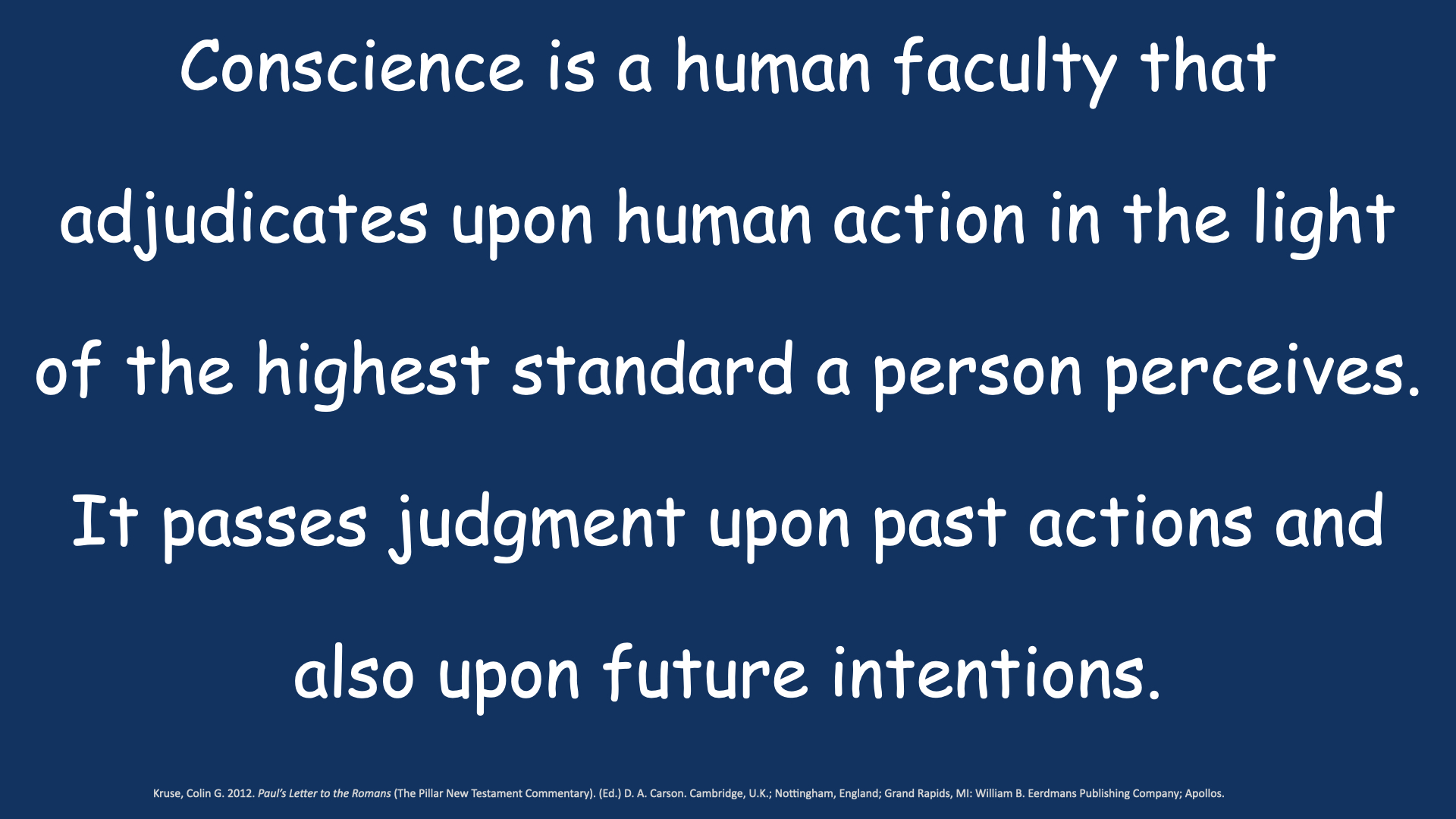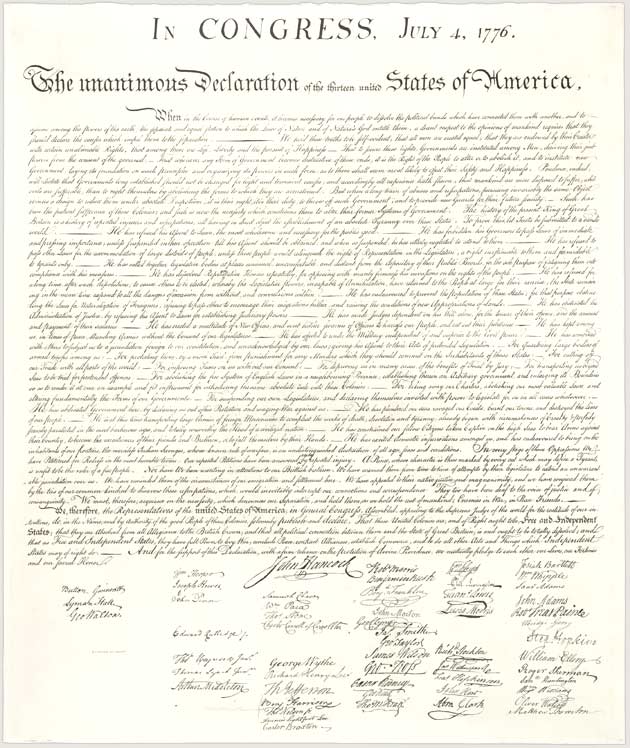|
|
Answers to
Biblical Perspectives On Governmental Authority
Part 2
Here's the Answers to Biblical Perspectives on Governmental Authority Part 2.
Day One - Answers to Biblical Perspectives on Governmental Authority Part 2

Question 1 - Can the government you live under influence Christians to sin?
Question 2 - Alternatively, can it influence the people it governs not to sin?
For both questions, explain how this might be so.
Answer 1 - We should first note that this question is focused on the influence to sin. It doesn't address situations where a government might force compliance through the threat of punishments.
In that regard, there are certainly many things a government might do that could influence or allow for the governed peoples to sin. Some examples are government laws, or lack of them, that would permit:
- slavery
- gambling
- abortions
- prostitution
- pornography
- recreational drug usage
- discrimination based on race or gender
The point here is that the allowance for these things can influence someone to sin; but they do not force someone to sin, even if they are legally bound by law to do so.
Answer 2 - A government can certainly influence people NOT to sin if its laws are biblical.
For example, if the government has a law that says do not murder, that's biblical (Exodus 20:13).
And of course, if we follow Jesus' example (see Matthew 5:21-22), we won't just obey the law of the government in not committing murder, we won't even be angry with our fellow man. Indeed, when we follow Jesus' example we'll love our neighbors as ourselves (Matthew 22:37-39).
We see the government's influence exerted in the form of punishment, which deters law-breaking in general; and if the laws are biblical, they encourage Christian behavior.
Day Two - Answers to Biblical Perspectives on Governmental Authority Part 2

Question: For what reason should people should submit to governmental authority?
Answer:
We find the answer in verses 1 and 2 of Romans Chapter 13. The verse provides that everyone must submit to the governing authorities because they are instituted by God. In these first two verses we find a threefold announcement of the same thing:
- that there is no authority except that which God has established (vs 1)
- that God has established the authorities that exist (vs 1)
- and that if you rebel against authority, you're rebelling against what God instituted (vs 2)1
It's really that simple and straightforward.
But you might ask, "How can this be true?" Or you might say, "Paul has lost his mind!" After all, didn't the Roman and Jewish authorities crucify the Lord Jesus Christ? How can they then be given authority from God?
Jesus himself answers this question for us in the Gospel of John. In verse 11 of chapter 19, he tells Pilate, who ordered him crucified: "You would have no authority over me at all unless it had been given to you from above."
The fact that governments might misuse their authority does not change the fact that their authority is granted to them by God Almighty. This has been true of Egyptian pharoahs, Roman emperors, kings and queens, American presidents, and any other governmental authority. What's depicted in the Book of Romans of government is a statement of "the divine ideal, not the human reality."2
In summary, governmental authority is granted by God. Misuse of that authority does not negate the fact that God is the source. Christians must rest in the fact that God knows about all abuses of governmental authority and that he will establish a kingdom that will never end for them.
More later on this.
Day Three - Answers to Biblical Perspectives on Governmental Authority Part 2
Question: What is the purpose of government?
Answer:
To answer this, someone will cite the famous and wonderful words of the American Declaration of Independence. It states:
"We hold these truths to be self-evident,
that all men were created equal,
that they are endowed by their Creator
with certain unalienable Rights,
that among these are
Life, Liberty, and the pursuit of Happiness.
That to secure these rights,
governments are instituted among men,
deriving their just powers
from the consent of the governed ..."
It's certainly true that all men (and women) are created equal; and that they're endowed with the right to life, liberty, and the pursuit of happiness. But the security of these rights is only a partial reason governments are instituted among men.
We've already observed the threefold announcement that the governing authorities are given their authority by God. Now we see that there's a threefold announcement that governments are given this authority for the following God-given purposes in verses four through six:
- they are God's servants to do you good (vs 4)
- they are God's servants, agents of wrath, to bring punishment (vs 4)
- the authorities are God's servants (vs 6)3
But notice the additional reason provided in verse five. Here we see that we are to obey the governmental authorities because of our conscience. This doesn't mean because if you don’t, you'll feel guilty, but that critical moral reflection of a positive sort will reveal that it's the right thing to do.4 We obey the authorities not only because of what will happen to us if we don't, but because it's the right thing to do.5
One commentator put it this way:
"The Christian has a higher motive for obeying the ruler than the unpleasantness of the consequences of disobedience; the Christian knows that such obedience is in accordance with God’s will, and by rendering it will preserve a good conscience in relation to God."6
While the unbeliever will primarily be motivated by the danger of facing the wrath of government, the Christian will depend upon conscience. In Romans 2:14–15 it's referred to that inner awareness of right and wrong that God had “written on [the Gentiles’] hearts.” Here conscience is still an inner awareness of God’s will, but for the Christian it's based on the knowledge of God’s will that's informed and transformed by the Spirit (cf. 12:1–2).
Some have argued that conscience has primarily a negative function, referring to the pain we feel when we transgress the moral law. Yet, at the same time, it “includes the power of discernment and rational reflection which enables the mind to analyze situations and actions, to discern moral issues and principles, the capacity to hear and apply the Word of God to our lives.” The negative force is primarily true here for unbelievers, while for Christians it functions positively, telling what God wants us to do.7
More later on this.
Day Four - Answers to Biblical Perspectives on Governmental Authority Part 2
Question: Is it possible to be a policeman or soldier, and still be an ethical Christian?
Answer:
It stands to reason that if governmental authority is a servant of God (verse 4), then being a Christian and an enforcer of the government's authority (i.e. a policeman or policewoman) is not unethical in and of itself.
Of course there are difficult decisions in handling people who require police attention that will try the patience, temperament, and character of the policeman. And certainly there are opportunities to abuse the power of the position as well. But in no circumstance can there be a blanket condemnation of the police simply because they have a duty to uphold the law and maintain public order on behalf of the God-authorized state.
This becomes difficult when the police must use physical measures or deadly force to protect themselves or the public from violence. But if we read Romans 13:1-7, then we see that we should not resist authority; and if we do, we bring judgement upon ourselves. But if we do good, we have nothing to worry about. In short - obey the law and all will be well; and as you do so, respect the police.
The aspect of ethics for the soldier, is less clear. That's because the soldier's primary job is to kill or use force to control an entire population of people. Violence has been part of the history of mankind since Cain, the first son of Adam and Eve. He killed Abel, the world's first brother. Unfortunately, murders and murderers are still with us today.
In the Bible, God directed the Israelites to conduct war to achieve his purposes against those who opposed him (for example - Joshua). He also directed war against the Israelites when they disobeyed him (for example - Nebuchadnezzar). It's interesting to note that in both cases idolatry was the problem. But the Bible doesn't consider violence sacred or holy. David could not build the temple because there was so much blood on his hands (1 Ch 28:3). Fighting may be considered just because it is warranted and conducted according to the principles of justice applicable to all people.8
Norman Giesler provides the following conditions for a just war from the Bible; it must:
- be declared by one's government (Romans 13:4)
- be in defense of the innocent and/or against an evil aggressor (e.g. Genesis 14)
- fought by just means (Deuteronomy 20:19)
By the way, Giesler also argues that total pacifism is not biblical. He observed that Jesus' command to turn the other cheek refers to a personal insult (like a slap in the face) not bodily harm. He notes that even Jesus refused to turn his cheek when he was unjustly struck in John 18 (vs 22-23). Finally, Giesler also offers that the command to love our enemies does "not preclude the use of force to restrain them from killing us". He cites Paul's appeal to Caesar in Acts 23 as an example.9
In summary, the Christian man or woman serving in the armed forces or in the police force does so for the common good. In fact, the pledge to serve at the cost of one's life for the innocent or one's country is both noble and deserving of great honor.
Do you want to be on good terms with the government? Be a responsible citizen and you’ll get on just fine, the government working to your advantage. But if you’re breaking the rules right and left, watch out. The police aren’t there just to be admired in their uniforms. God also has an interest in keeping order, and he uses them to do it. That’s why you must live responsibly—not just to avoid punishment but also because it’s the right way to live.
Romans 13:3-5
Peterson, Eugene H. 2005. The Message: the Bible in contemporary language. Colorado Springs, CO: NavPress.
Day Five - Answers to Biblical Perspectives on Governmental Authority Part 2

Question: How should Christians respond when a government endorses or enforces a law that requires them to disobey the commandments God provides in the Bible?
Answer:
Charles Colson wrote about a Christian citizen's biblical response to its government. Here's an excerpt of his article:
“No area of cultural engagement is more important that government and politics. We’re commanded to submit to governing authorities (Romans 13); Jesus himself said, ‘Give back to Caesar the things that are Caesar’s (Matthew 22:21).
This means Christians must be good citizens, pay taxes, obey laws, and serve (as called) in government. Augustine argued that Christians are to the the best citizens: what others do only because the law commands, we do it out of love for God.”
Because government is ordained by God to preserve order and do justice, we’re instructed to honor the king (1 Peter 2:13-17) and pray for those in authority that we might live peaceful lives (1 Timothy 2:1-22). The only thing worse than bad government is anarchy.”
It’s a noble calling for Christians to enter public service. Contrary to common caricatures of politicians, some of the finest public servants I’ve known are serious believers who love out their faith in office without compromising their convictions.
The cultural mandate means the church has an important role to play with respect to political structures - working for justice, speaking prophetically, and often being the conscience of society, even when this means persecution, prison, or death, as it did for many in the confessing church in Nazi Germany.
The public square needs religious influence; indeed, the Christian faith has played a critical role in shaping our institutions. But the church must approach its public role with caution and sensitivity. Pastors and other church leaders, for example, should never make partisan endorsements of candidates (which can divide our ranks and politicize our faith) or allow themselves to be in the hip pocket of any political party.
That said, the pastor should never hesitate to speak boldly from the pulpit about pressing moral concerns. Christians individually and through political organizations must engage in the political process, always preserving their independence and fulfilling the prophetic office (which means calling friends to account). Though citizens are to be the best citizens, our first loyalty is not to the kingdom of man but to the kingdom of God.”10
But no matter how well the intentions of a nations citizenry might be, a government might act in an ungodly manner, or in an evil way. At times this can influence, and at worse, compel the nation's citizens to disobey God's Word. John Stott provides great insight on this:
"Granted that the authority of rulers is derived from God, what happens if they abuse it, if they reverse their God-given duty, commending those who do evil and punishing those who do good? Does the requirement to submit still stand in such a morally perverse situation? No. The principle is clear.
We are to submit right up to the point where obedience to the state would entail disobedience to God. But if the state commands what God forbids, or forbids what God commands, then our plain Christian duty is to resist, not to submit, to disobey the state in order to obey God.
As Peter and the other apostles put it to the Sanhedrin: ‘We must obey God rather than men!’(Acts 5:29). This is the strict meaning of civil disobedience, namely disobeying a particular human law because it is contrary to God’s law. To trespass and organize a sit-in, or to obstruct the police in their duties, may also in some circumstances be justified, but it should be called ‘civil protest’ rather than ‘civil disobedience’, since in this case the laws which are being broken in order to publicize the protest are not themselves intrinsically evil.
Whenever laws are enacted which contradict God’s law, civil disobedience becomes a Christian duty. There are notable examples of it in Scripture.
- When Pharaoh ordered the Hebrew midwives to kill the newborn boys, they refused to obey. ‘The midwives … feared God and did not do what the king of Egypt had told them to do; they let the boys live’ (Exodus 1:17).
- When King Nebuchadnezzar issued an edict that all his subjects must fall down and worship his golden image, Shadrach, Meshach and Abednego refused to obey (Daniel 3).
- When King Darius made a decree that for thirty days nobody should pray ‘to any god or man’ except himself, Daniel refused to obey (Daniel 6).
- And when the Sanhedrin banned preaching in the name of Jesus, the apostles refused to obey (Acts 4:18ff).
All these were heroic refusals, in spite of the threats which accompanied the edicts. In each case civil disobedience involved great personal risk, including possible loss of life."11 In each case its purpose was ‘to demonstrate their submissiveness to God, not their defiance of government.’12
In terms of application, Christians must weigh the laws and the actions of its government against the Word of God. This implies a knowledge and understanding that comes from actively studying the Bible. So Christians must first be Bible students. Secondly, they must weight the actions of their government against the Bible. Most importantly, if they are to disobey the government, they must publicly and peacefully cite the Biblical reason for doing so and pray that God will be honored by their disobedience.

We pray you've been blessed by these
Answers to Biblical Perspectives on Governmental Authority Part 2.
We prepared our Answers to Biblical Perspectives on Governmental Authority Part 2 partly from the resources below. We offer these for your consideration.
1 Stott, John R. W. 2001. The message of Romans: God’s good news for the world (The Bible Speaks Today). Leicester, England; Downers Grove, IL: InterVarsity Press.
2 Ibid.
3 Witherington, Ben, III & Darlene Hyatt. 2004. Paul’s letter to the Romans: a socio-rhetorical commentary. Grand Rapids, MI: Wm. B. Eerdmans Publishing Co.
4 Stott.
5 Morris, Leon. 1988. The Epistle to the Romans (The Pillar New Testament Commentary). Grand Rapids, MI; Leicester, England: W.B. Eerdmans; Inter-Varsity Press.
6 Bruce, F. F. 1985. Romans: an introduction and commentary (Tyndale New Testament Commentaries). Vol. 6. Downers Grove, IL: InterVarsity Press.
7 Osborne, Grant R. 2004. Romans (The IVP New Testament Commentary Series). Downers Grove, IL: InterVarsity Press.
8 Durie, Mark. 2007. What Did Jesus Have to Do With Violence?, The Apologetics Study Bible, Nashville, TN: Holman Bible Publishers.
9 Giesler, Norman. 2007. Does the Bible Support a Just War?, The Apologetics Study Bible, Nashville, TN: Holman Bible Publishers.
10 Colson, Charles. 2007. How Should a Christian Understand the Role of Government?, The Apologetics Study Bible, Nashville, TN: Holman Bible Publishers.
11 Stott.
12 Charles W. Colson, Kingdoms in Conflict, An Insider’s Challenging View of Politics, Power and the Pulpit (William Morrow/Zondervan, 1987), p. 251.